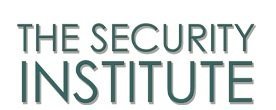This course was developed to satisfy the safety and security training needs of those working in a broad spectrum of places of public assembly such as indoor and outdoor events including sporting, concerts and festivals. Safety topics are covered in depth to compliment the security requirements within these environments. Course content includes Mass Event Pre-preparation, Legislation, General Duties and Responsibilities, Practical Safety Considerations, Crowd Control and the Role of the Event Supervisor.
Course Outcomes
On successful completion, participants will be able to understand:
- On successful completion, participants will be able to understand:
- Why historical deficiencies in event planning and management led to the development of measures to improve event safety and security
- Best practice as contained in published standards and codes of practice and core requirements which impact on events
- The range of outdoor and indoor event types and the characteristics of those attending
- The stages of event planning pre-preparation and the organisations typically involved in event planning and management
- The relevant aspects of a typical event management plan
- Criteria for establishing an event command and control system
- The role and responsibilities of the event supervisor
- The general duties and responsibilities of security staff in implementing the event management plan
- Crowd characteristics, crowd dynamics and crowd behaviour
- The nature of major incidents, emergencies and responses to emergencies
- The role of security in monitoring and responding appropriately to health, safety and comfort issues of those attending an event
- The importance of effective communications between security staff, supervisor, management, patrons and external support and emergency services
- Patron rights and the principles of customer care.
Assessment Summary
The course is assessed by way of a written examination and a 2,000 word project. A pass mark must be achieved in both the written examination and the project. The written examination is completed online. The project will be presented in the format described in the assessment guidelines provided. Appeals processes are in place and extensions and resubmissions are allowed in extenuating circumstances.
Duration
These online courses are self-directed; the level of commitment required is dependent upon the experience of each individual participant. While the course duration is scheduled for three months; participants can complete the course and submit their final projects at any time within the three months.
Support
Participants will have supports available to them, including:
- Extensive course materials taking participants through the course step by step
- Study guidelines
- Comprehensive assessment guidelines and submission templates are provided
- E-mail support provided by course trainers
- Access to the online forum for support and discussion.
E-Learning Benefits
The course is fully completed online. Access to all materials required is provided on registration, allowing participants to study and complete their coursework at their own pace. The Learning Management System used is provided by DOKEOS, who are based in France with support offices throughout the world. 5.5 million people have used the system to date.
Certification
Successful completion leads to the awarding of an Advanced Certificate in Event Security and Safety. This Certificate is awarded by an internationally recognised industry sector body, The Security Institute of Ireland.
Conditions of certification include:
- Provision of basic personal details and correspondence information
- A pass mark of 50% or over in assessment
- Payment in full of all fees
- Satisfactory completion of all declarations
- Assessor recommendation
Security Institute Membership
A benefit of this course is that it can lead to membership of the Security Institute, a professional body for security professionals. Membership of the Institute is open to professional experienced persons in any country. Members of the Institute are recognised by the use of the title M.Sec.I.I after their name. On completion of the course, successful participants are entitled to apply for membership.
Registration Options
This course is not currently open for registration.
